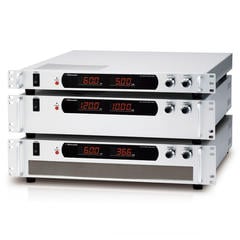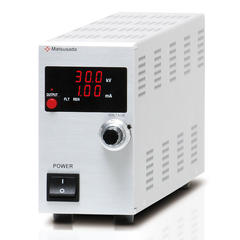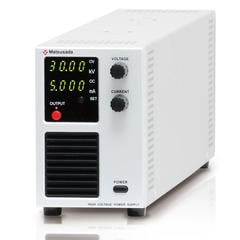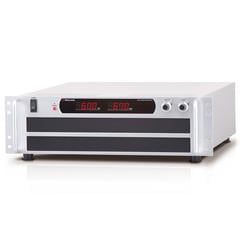The capacitor test is a test to measure the performance of capacitors. The tests are specified in JIS C 5101-1:2019 and IEC 60384-1:2016, and include Dielectric withstand test, leakage current measurement tests, and destructive tests.
For tantalum capacitors and ceramic capacitors, withstand voltage tests are conducted. In order to ensure reliability, the test for the capacitor requires a high-voltage power supply capable of applying a higher voltage than the standard power supply, as the test is conducted at a voltage 1.5 to 2 times the rated voltage to ensure reliability.
In the leakage current measurement test, it is measured the amount of current flowing when a certain voltage is applied. To measure the leakage current, a high voltage is applied using a high voltage power supply, and the current leaked during the application is measured.
In the destructive test, a higher-than-rated voltage is applied to the target capacitor, and at what voltage it fails is tested. When a capacitor is destroyed, the circuit becomes short-circuited and an overcurrent flows, creating a very dangerous situation. However, Matsusada Precision has the models with a protection function that cuts off the output in case of overcurrent.
We also handle high-voltage power supplies, which are available for various types of capacitor testing as well as destructive testing.
Withstand voltage test circuit

- Related words:
-
- Electrolytic capacitors
- Ceramic capacitors
- Film capacitors
- Withstand voltage test
- Leakage current
- Destructive test
- Overcurrent
- High voltage
- Capacitor Charging
Recommended products
Matsusada Precision has models with a protection function that cuts off the output in case of overcurrent. We handle high-voltage power supplies, which are available for various types of capacitor testing as well as destructive testing.








